

■パラドックスを生きる科学者たち
花田:そこが私は面白いと思っているんです。オッペンハイマー個人が、あの映画の主人公として、個人が非常に面白いと思う。
鈴木:そうですね。
花田:興味深い存在であって。私が関心を持つのは二つのことがあって、一つは鈴木さんも科学者だから、科学者の前で言うのは一寸はばかるかもしれないんだけど。
鈴木:元・科学者です。
花田:(微笑)科学者の欲望、あるいは本能というのかな。彼は実験が苦手だけど理論は得意になって、トリニティー実験ではいわば不得意な実験でリベンジするわけです。実験に成功してね。理論的技術的な成功を望む、そういう欲望が非常に─科学者のみんながみんなそうとはいえないけど─オッペンハイマーやアーネスト・ローレンスなどもそうだけど、みんな成功ということに取り憑かれていると思うんですね。
そうするとその裏返しで、それが使用された時の政治的な影響とか、社会的な影響とか、その結果は一旦棚上げにしてしまうと。後でオッペンハイマーは後悔する。エドワード・テラーは水爆を開発しても後悔してないと思うんですけど。
で、理論的・技術的な成功と、その技術が実際に使用された時の政治的、社会的影響なり結果ということを分離して考える。その事によって科学者としての欲望というのかな、本能を発露させていくというのかな。結果的にあとでそれで悩むことにはなっちゃうけど。
そういうあり様を見て、同時にそういう人たちが集まってくるミリューというのかな。あの映画に出てくる著名な物理学者たち、天才と呼ばれるような人たち、アインシュタインもニールス・ボーアも含めて出てくる。そういう一群の物理学者たちのミリューというのかな、それが非常に面白いと思うんです。
そういう人たち同士の間での名誉心の闘いとか、あるいはコンプレックスとか、あるいは嫉妬の感情とか、そういうものでグルグルグルグル回りながら、物理学者たちが競争しながら業績を達成していく。
そのロジックの先に何があるのか?結局は原爆という兵器を開発することに至るけど。なんて言うんですかね、ダイナミズム。変人奇人たちが作り出す、天才たちが作り出すタイナミズム。場合によれば負のダイナミズム。
そこに登場するプレーヤーたちの、とりわけオッペンハイマーはそうだけど、複雑な人格、パーソナリティーの複雑さとか、その後の逆説的な人生かね。パラドックスを生きていかないといけなくなってくるとかね、そこが非常に面白いと思いましたね。
同時に、そういう人たちでないと、ああいう物理学のブレークスルーは達成できないんだろうなーという気もするんですよね。常識人によっては分からないような事を考え出す、アインシュタインもね。その人達が変人奇人であったからこそ、常識人が考えないようなアイディアを思いつき、閃き直感を持つことができた。それ自体もパラドックスだと思うんです。
そこがオッペンハイマーに非常に具現化されているというんですかね。オッペンハイマーが一身にパラドックスを担わされている、自ら担うというかな。そこには非常に興味がありますね。
■ Scientists Living a Paradox
Hanada: That is what I find interesting. I think the individual Oppenheimer, as the protagonist of that film, the individual is very interesting.
Suzuki: Yes, that's right.
Hanada: It is an interesting existence. I am interested in two things. One is that Suzuki-san is also a scientist, so it may be a little awkward for me to say this in front of a scientist.
Suzuki: I am a former scientist.
Hanada: (smiles) I guess you could call it a scientist's desire or instinct. He's not good at experiments, but he's become good at theory, and in the Trinity experiment, so to speak, he gets his revenge in an experiment he's not good at. He succeeds in the experiment. I think that desire for theoretical and technical success is very strong, and not all scientists are like that, but I think they are all obsessed with success, including Oppenheimer and Ernest Lawrence.
Then, on the flip side, he said, the political or social consequences of its use would be shelved once it was used. Oppenheimer would later regret it. I don't think Edward Teller regretted developing the hydrogen bomb.
Theoretical and technological success and the political and social impact or results of the actual use of the technology are considered separately. By doing so, I think I am revealing my desires and instincts as a scientist. But I will have to worry about it later on.
I guess you could call it a milieu where you see such a state of being and at the same time such people gather together. The famous physicists in the film, people who are called geniuses, including Einstein and Niels Bohr, appear in the film. I think it is very interesting to see the milieu of such a group of physicists.
The physicists compete with each other to achieve their accomplishments, while going around and around in circles with honor struggles among such people, or complexes, or feelings of jealousy, and so on. What is at the end of that logic? In the end, though, they end up developing a weapon called the atomic bomb. What can I say, dynamism? A dynamism created by eccentrics and oddballs, a dynamism created by geniuses. In some cases, it is a negative dynamism.
The players there, especially Oppenheimer, but the complexity of their personalities, the complexity of their personalities, and the paradoxical lives that follow. I thought it was very interesting that they had to live with the paradoxes.
At the same time, I feel that only people like that would be able to achieve breakthroughs in physics like that. They come up with ideas that would not be understood by common sense people, and Einstein too. Because those people were weirdos and eccentrics, they were able to come up with ideas and have flashes of intuition that common sense people wouldn't think of. I think that in itself is also a paradox.
I would say that this is very much embodied in Oppenheimer. Oppenheimer is being forced to carry the paradox all on his own, or perhaps he is carrying it himself. I am very interested in that.
鈴木:おっしゃるとおりだと思うんです。今回の「マンハッタン・プロジェクト」の科学者がどういうふうにしたか、花田先生の仰るようにたいへん面白いダイナミズム。そういう見方ですけど、科学者の中にもいろんな人が居る。そこを映画にもうちょっと出てくるとよかった。
なぜオッペンハイマーが研究から飛び出してロスアラモス、あんな所に行ってしまったのか。それは追求心とか自分の欲ではないんですね、たぶん。やっぱりね、ナチス・ドイツに渡してはいけない。アインシュタインがルーズベルト大統領に手紙を書いた(1939年8月2日)のもそうですし・・。ロスアラモスに行ってしまうと論文は書けないですよ。国家極秘プロジェクトだから発表できない。
それでも、みんな集まるわけです。それのモチベーションは明らかに戦争なんですよね。だから、普通の状態の科学者のメンタリティーとは違う。そのメンタリティーがロスアラモスには明らかに有った。
で、残念ながら、今回の『オッペンハイマー』には、シラードは出てきたんですけど、ご存知のジョセフ・ロートブラット博士はポーランド人なんですが、彼は、ドイツが核兵器開発に失敗した・・・と知った時に「じゃもう爆弾作る必要ないじゃないか」と、マンハッタン計画を辞めてしまう唯一の科学者なんですね。その彼がパグウォッシュ会議を作るんですね、ラッセル・アインシュタイン宣言を出してパグオッシュ会議を開催するんです。
だからレオ・シラード、シカゴ・グループは開発まではやるけど、それを使うかどうかについての判断については科学者として声を挙げるべきだ・・という人が居たわけですよ。「フランクレポート」になって出てます。
そういう意味では科学者の社会的責任、『ゴジラ』の芹沢博士と同じ悩みを彼らは持っていた。そうでないエドワード・テラーのような人たちもアメリカに居た。それをメクラにしてしまったのが戦争。
だから私は戦争と科学の関係とか、政治と科学の関係というのが大きなテーマになって、そこを今回の映画を観た人たちに、そこの処にもう一寸とハイライトを当ててくれると、「戦争はよくない」となる。一応、反戦映画だと私は思うんですが、どうしてもオッペンハイマー一人に焦点が当たっているので、オッペンハイマーの苦労は分かるんだけど、多分、戦争が科学者を狂気に走らせて、凶器を開発してしまった。原爆をつくるわけですね。
もう一つですね、これは細かな話です。科学者と技術者と違うんですね。原爆を作るのは科学者だけでは出来ないんです。工学部の人たちがいないと作れない。アメリカの産業界も参加しているんですね。産業界の役割はものすごいですよ。映画には出てこない、『マンハッタン計画』を読むとデュポンとか、とにかく原料を大量生産しなければいけないので、理論だけでは核兵器は出来ない。
爆弾の設計までは科学者の仕事だけど、実際に製造するのはオッペンハイマーは手をかけていない。みな技術者が担っている。だから優秀な技術者も貢献していたんだけど、それが「ミリタリー・インダストリアル・コンプレックス」になって今も残ってしまった。
だから「マンハッタン計画」の生んだものは、単なる科学者のコミュニティーだけじゃなくって ─ロスアラモスは今でも残っていますが・・─ ニュークリアー・ミリタリー・インダストリアル・コンプレックスを作ってしまった。それが原子力発電も作っているわけですし、未だにそれが原子力の後ろに居るわけですから、マンハッタン計画の罪は重い。その罪を作ったのは私は科学者というよりは戦争だと。
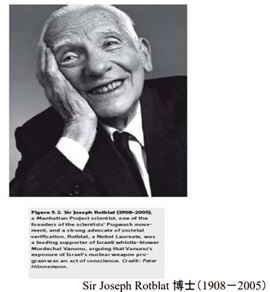
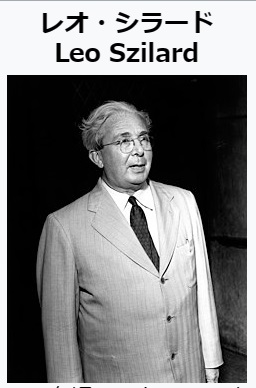

Suzuki: I think you are right. As Dr. Hanada said, the way the scientists of the "Manhattan Project" did this time is a very interesting dynamism. As Dr. Hanada said, it is a very interesting dynamic, and there are many kinds of people among scientists. I would have liked to see a little more of that in the film.
Why did Oppenheimer jump out of his research and go to Los Alamos, that place? It was not pursuit or his own greed, perhaps. After all, you can't give it to Nazi Germany. And so was Einstein's letter to President Roosevelt (August 2, 1939).... I can't write a paper if it goes to Los Alamos. I can't publish it because it is a top secret national project.
And yet, people still get together. The motivation for it is obviously war. So it is different from the mentality of a normal state scientist. That mentality was clearly present at Los Alamos.
Unfortunately, Szilard was in "Oppenheimer," but Dr. Joseph Rothblatt, who you know is Polish, was the only scientist who quit the Manhattan Project when he learned that Germany had failed to develop nuclear weapons, saying, "Then why do we need to make bombs anymore? He was the only scientist who quit the Manhattan Project when he learned that Germany had failed to develop nuclear weapons. So he creates the Pugwash Conference, the Russell-Einstein Manifesto and holds the Pugwash Conference.
So Leo Szilard, there were people who said, "The Chicago Group is going to develop it, but we as scientists should speak up about the decision to use it or not. It's out there as the "Frank Report.
In this sense, they had the same concerns about the social responsibility of scientists, the same concerns as Dr. Serizawa in "Godzilla. There were people like Edward Teller in the US who did not. It was the war that turned them into mekkras.
So I think that the relationship between war and science, or politics and science, is a major theme, and if you could highlight that a little more to the people who saw this film, they would say, "War is not good. I think it is an anti-war film, but the focus is on Oppenheimer alone, and although I understand Oppenheimer's hardships, perhaps the war drove scientists to madness and led them to develop deadly weapons. So you create the atomic bomb.
One more thing, and this is a minor detail. There is a difference between scientists and engineers. Scientists alone cannot make an atomic bomb. It cannot be made without people in the engineering department. I understand that American industry is also participating in this project. The role of industry is tremendous. If you read "The Manhattan Project," which does not appear in the movie, you will see that Du Pont and others had to mass-produce raw materials, so nuclear weapons cannot be created by theory alone.
The scientists work up to the design of the bomb, but Oppenheimer does not have a hand in the actual manufacturing of the bomb. It is all done by engineers. So some of the best engineers contributed, but it became the "Military-Industrial Complex" and it remains today.
So the Manhattan Project created not only a community of scientists, but also - and Los Alamos is still there - the Nuclear Military Industrial Complex. It also created nuclear power, and it is still behind nuclear power, so the sins of the Manhattan Project are serious. I believe that it was war, rather than scientists, that created that sin.
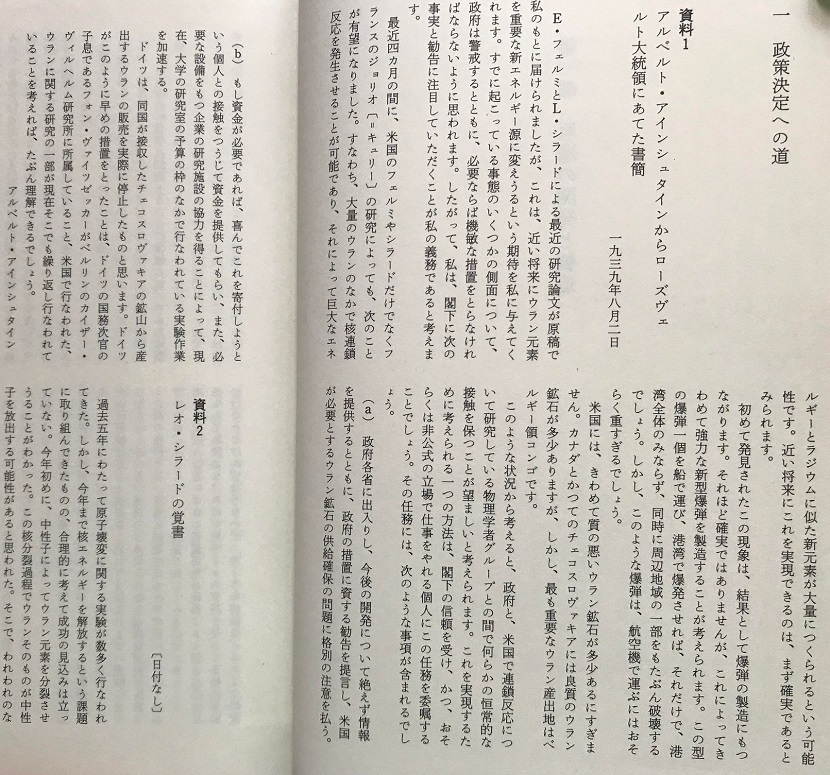
■科学者と戦争
花田:そうですよ。で、しかも戦争が物理学も発展させたわけだよね。
鈴木:おっしゃるとおりです。だからそこが難しいんですよね。核分裂は戦争原因じゃなくって発見されているわけです。だから「核分裂を、どういうエネルギーに使うのか?」と言ったときに、戦争が爆弾づくりの方に走らせてしまった。
花田:アメリカではオッペンハイマーもそうだった。ドイツだったらハイゼンベルグでしょう。日本なら仁科芳雄。科学者がみんな戦争遂行のために・・・ということで、政府に命令なりを受けて、取り込まれて、仁科芳雄さんもサイクロトロンを造ったわけですよね。ドイツではハイゼンベルグも造った。
ドイツ、日本、アメリカと戦争中の3つの国の中で、科学者が、あるいは物理学者が兵器開発に消極的にか?積極的にか?あるいは強制されてか?いろいろな状況はあるんだろうけど、結果として取り込まれていく。つまり戦争状況という中でね。それによって理論物理も発達するし、産業も、軍事産業になるわけだけど、それも発達していった。要するに大きな状況が戦争だという点、それを押さえるべきだろうなと思うんですよ。
佐藤:ファシズムが台頭して第一次大戦の影響下でヒトラーがでてくるわけですけれど、ドイツでは核兵器は出来ていなかったんだけど、双方皆が被害妄想に陥る。ドイツより先に新型兵器を作らないと先を越されて落とされちゃう。根拠は無いんだけど人間が持っている被害意識というのが暴走し爆弾を製造してしまう。
鈴木:根拠が無いことはないです!ドイツで核分裂が発見されたわけですから。物理学的にはドイツの方があの頃は進んでいたんですよ。
佐藤:ニールス・ボーアが核兵器を作る時にソビエト連邦とも情報を共有して核の科学的開発研究はやったほうがいいという。シカゴ派の科学者たちのような科学者が一方にいて、軍の人たちは秘密にして開発したい。帝国主義とファシズム、共産主義と核分裂の発見段階が微妙に重なっているんでしょうが。あの時代は大恐慌とかファシズムの台頭とか、コミニズムの発達で科学者も予想もしない行動をしてしまい、いろいろ造ったりする。
現在も各国の政治がグニャグニャで第二次世界大戦に突入する、前夜のような時代状況もだから核についても考えよ!と。映画『オッペンハイマー』は有る種の警鐘を鳴らしているんだと思う。
鈴木:その通りなんです。でね、ドイツのハイゼンベルグはひょっとしたらわざと協力しなかったのではないか。協力しているふりをして開発を遅らせたという説もあるんですね。ハイゼンベルグとニールス・ボーアと対話劇『コペンハーゲン』が本になっているんです。事実は分からないです。
佐藤:そうだとしたら科学者に希望を見い出せるような気がしますが。
鈴木:事実は分からないです。一方でフォン・ブラウンみたいにロケットを一生懸命、兵器で開発して、お金もらえば何でも造る。
花田:V2ロケットですね。
鈴木:そう、ロケットを開発した科学者も居るのでなかなか難しいんです。私が言いたいのは、科学者は一様ではない。いろんな科学者が居る。それがオッペンハイマーという人間を、彼が科学者の象徴かのように扱われるのは一寸違うかな・・・・と。あくまでもオッペンハイマーはオッペンハイマーであると。
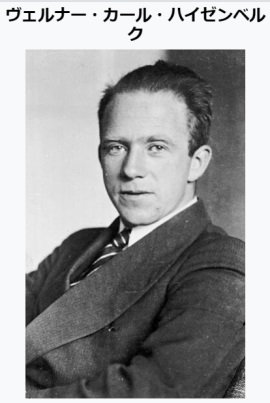
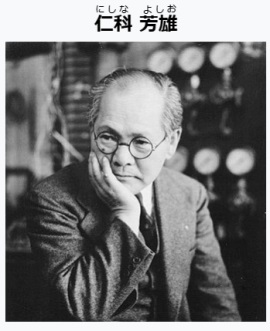

■ Scientists and War
Hanada: That's right. And, moreover, the war developed physics as well, right?
Suzuki: You are right. So that is the difficult part. Nuclear fission is not the cause of war, but it has been discovered. So when we say, "What kind of energy do we use nuclear fission for?" the war drove people to make bombs.
Hanada: In the U.S., it would have been Oppenheimer. In Germany, it would be Heisenberg. In Japan, it would be Yoshio Nishina. All the scientists were ordered by the government to build cyclotrons for the war effort, and Yoshio Nishina built a cyclotron. In Germany, Heisenberg also built a cyclotron.
In the three countries at war with Germany, Japan, and the United States, are scientists or physicists reluctant to develop weapons? Actively? Or under compulsion? There may be many situations, but the result is that they are taken in. In other words, in a war situation. Theoretical physics developed as a result, as did industry, which became the military industry. In short, I think we should keep in mind that the major situation is war.
Sato: Fascism was on the rise and Hitler was under the influence of World War I. In Germany, nuclear weapons had not been built, but everyone on both sides was paranoid. If we don't build a new weapon before Germany does, we'll be dropped ahead of them. There is no basis for this, but the paranoia that people have runs rampant, and they build a bomb.
Suzuki: There is no lack of evidence! Because nuclear fission was discovered in Germany. Physically, Germany was more advanced at that time.
Sato: Niels Bohr said that when building nuclear weapons, we should share information with the Soviet Union and do scientific development research on nuclear weapons. Scientists like the Chicago School scientists on the one hand and the military people on the other want to keep it secret and develop it. I guess there is a subtle overlap between imperialism and fascism, communism and the discovery stage of nuclear fission. In that era, with the Great Depression, the rise of fascism, and the development of communism, scientists would act unexpectedly and build things.
The political situation in each country is still in a state of flux, and we are on the eve of World War II, so think about nuclear weapons! And so, we should think about nuclear weapons! I think the movie "Oppenheimer" is sounding a kind of warning bell.
Suzuki: That is correct. And Heisenberg in Germany may have deliberately not cooperated with us. There is a theory that he delayed development by pretending to cooperate. There is a dialogue between Heisenberg and Niels Bohr, "Copenhagen," which has been published as a book. I don't know the facts.
Sato: If that is the case, I think we can find hope for scientists.
Suzuki: I don't know the facts. On the other hand, like Von Braun, they work hard to develop rockets with weapons and build anything if they get paid for it.
Hanada: The V2 rocket.
Suzuki: Yes, it is quite difficult because some scientists have developed rockets. My point is that scientists are not uniform. There are many different scientists. I think it is a little different to treat Oppenheimer as if he is a symbol of a scientist. ・・・・ Oppenheimer is just Oppenheimer.
花田:ただオッペンハイマーのような複雑な人格、そしてパラドックスを生きた人生。だからこそ映画の主人公になれるんであって。アーネスト・ローレンスは映画の主人公には出来ない。
鈴木:オッペンハイマーですね。ロート・ブラットは主人公にしてほしいと私は思う、私のヒーローだから。
彼のような、オンリーワンという人が居るんですよね。今回の映画『オッペンハイマー』には彼はでてこないですよ!伝記にもでてきてないですよね。
佐藤:ドイツが降伏したので去る・・・鈴木先生のヒーロー!ロートブラットはロスアラモスを去ったと伝記には記述あります(註3)。ドイツが敗戦したので核兵器つくる必要はないから、辞めるロスアラモスを去った・・・と書いてありました。
鈴木:今回の映画でそこを使ってほしかったな。
佐藤:映画ではロートブラットさんのロスアラモスを辞する様は描かれてなくって、水爆の父と言われたエドワード・テラーは去っていくシーンはあったけど。
鈴木:あれは有名なシーンです。
文庫『コペンハーゲン』小田島 恒志 (翻訳)
Copenhagen" by Tsuneishi Odajima (Translator)
(註3)伝記『オッペンハイマー』上巻465ページ
我々の仕事が、ナチスの勝利を防ぐことになるのと考えていたので、ドイツを負する必要のない兵器の開発を続けることはロート・ブラットには意味をみいだせなかった。連合軍ノルマンディ上陸してから
1944年12月8日ロート・ブラットはロスアラモスを去った。
Note 3) Biography, Oppenheimer, vol. 1, p. 465. Rothblatt did not see the point in continuing to develop weapons that would not be needed to defeat Germany, since he believed that our work would prevent a Nazi victory. After the Allied landings at Normandy On December 8, 1944, Rothblatt left Los Alamos.
Hanada: Just like Oppenheimer, a complex personality and a life of paradoxes. That's why he can be the hero of a movie. Ernest Lawrence cannot be the protagonist of a movie.
Suzuki: Oppenheimer. I would like Rothblatt to be the hero, I think, because he is my hero. There are people like him who are the only one. He's not in this film "Oppenheimer"! He's not even in the biography.
Sato: Leaving because Germany surrendered ... Dr. Suzuki's hero! The biography states that Rothblatt left Los Alamos (Note 3). It says that he left Los Alamos because Germany lost the war and there was no need to build nuclear weapons.
Suzuki: I wish you had used that in this film.
Sato: The movie did not depict Mr. Rothblatt's resignation from Los Alamos, although there was a scene in which Edward Teller, the father of the hydrogen bomb, left.
Suzuki: That is a famous scene.
■第二次世界大戦中の物理学者と共産主義
花田:もう一つね、さっきオッペンハイマーの人物に二つ関心があったと言いましたが、一つ目は先程言いましたけど、もう一つは物理学者と共産主義の関係なんですよ。もちろん全ての物理学者の問題でも無いわけだけれども、オッペンハイマーの場合、彼の社会的背景、あるいは自分の周りに共産党員が居た。あるいは彼自身も党員じゃないけれど、集会に関わりはもっていた。そこに私は関心があります。物理学、しかも理論物理学の学者がマルクスの思想や弁証法的唯物論に関心をもつというところ。映画の中でもオッペンハイマーは「ドイツ語で『資本論』全3巻を読んだ」と言ってますよね。
鈴木:言ってましたね。本読むの好きだった。
佐藤:あっという間に読んだと。
鈴木:そうそう、あっという間に読んだと言っていた。
花田:ドイツ語で読んでいるわけですよね。
鈴木:そうそう、ドイツ語で、すごいですね。
花田:凄いよ。
佐藤:オッペンハイマーの語学力すごいと伝記にあります。フランス語、ラテン語、ヒンディー語、なんでも読めちゃう、いろんな国の言語で詩を吟じちゃう。
花田:理論物理学者がどうして弁証法的唯物論を。どちらもマテリアリズムというか、物質論なわけだけど。理論的、抽象的なこととして両者がどう結びつくのか。必然なのか、偶然なのか。そこが非常に面白いなあと思いました。
佐藤:オッペンハイマーは共産主義者ではなかったと思います。資本論をドイツ語で読んだけどコミュニストではない、スペインのファシズムに対抗した共産主義者たちに寄付をしていたから、イコール共産党員だとはならないと思うんですけどね。
花田:共産党員ではないけれど、共産主義思想にシンパシーを持っていたとは言えると思うんですね。
佐藤:権力者に叩かれた弱者支援と共産主義運動支援が絡まっている。
花田:そうじゃなかったらフランコを倒すための人民戦線に寄付なんかしませんし。
佐藤:ジーンという愛人が登場するじゃないですか、精神科の女医さん。
花田:彼女は共産党員。
佐藤:愛人に付き合って影響受けたのではないかな?
花田:だけとオッペンハイマーの弟も共産党員なんでしょう。
佐藤:そうですね。
花田:周辺にね、共産党員がたくさん居たのは驚きですね。そんなに共産党員が一杯いるのかと?
佐藤:第一次世界大戦後から共産主義は流行ったのではないですか。後に赤狩りするぐらいたくさん共産党員がアメリカにもいた。ドイツファシズムと共産党が戦っていたりしてる、ドイツがロシアに攻め入る口実か?
花田:だからそれはやっぱりファシズム登場の中で出てくる。さきがけはスペインのフランコ独裁に対する人民戦線。それを支援する義勇軍に外国から参加していった人たちって、かなりいるわけですよ。ジョージ・オーウェルとか。
佐藤:オッペンハイマーはお金を支援するだけですからね。
花田:だけどシンパであることはかわりないですよ。彼はマルクスの本を読んでたわけだし。弁証法的唯物論と理論物理学を頭でどうして接続していくのか?そこが私は非常に知りたいですね。なぜ彼はそうなったか。簡単に言うと彼はレフトなわけですよね。
鈴木:分からないですけど、たぶんカルフォルニアじゃないですか。
花田:カルフォルニアの文化ね!
鈴木:アメリカの東海岸の科学者で共産主義者はあまり居なかったですね。
花田:そうですか。
鈴木:たぶん、ですよ。西海岸のリベラルなエスタブリッシュメントの文化じゃないかなー。日本で言えば大阪みたいなものだ。彼はカルフォルニア大好きだったでしょう。最初カルフォルニアのバークレー大学にいく。わからないですけどね。
■ Physicists and Communism during World War II
Hanada: One more thing. I mentioned earlier that I was interested in two aspects of Oppenheimer's character, the first of which I mentioned earlier, and the second is the relationship between physicists and communism. Of course, this is not an issue for all physicists, but in Oppenheimer's case, his social background, or the fact that he was surrounded by Communist Party members, or the fact that he was not a Party member himself. Or he himself was not a member of the party, but he was involved in the rallies. That is what I am interested in. I am interested in the fact that a physicist, a theoretical physicist, is interested in Marx's ideas and dialectical materialism. In the film, Oppenheimer says that he read all three volumes of Capital in German.
Suzuki: You mentioned it. I liked reading books.
Sato: You said you read it very quickly.
Suzuki: Yes, he said he read it very quickly.
Hanada: So you are reading in German.
Hanada: It's great.
Sato: In his biography, we read that Oppenheimer's linguistic ability is amazing. He could read French, Latin, Hindi, and any other language, and recited poems in many different languages.
Hanada: Why dialectical materialism by a theoretical physicist? Both are materialism or materialism. How are they connected theoretically and abstractly? Is it inevitable or coincidental? I thought that was very interesting.
Sato: I don't think Oppenheimer was a communist. I read Capitalism in German, but I don't think he was a communist, and I don't think he donated to the communists who opposed fascism in Spain, so I don't think that makes him an equal member of the communist party.
Hanada: I think we can say that you were not a member of the Communist Party, but you had sympathies for the Communist ideology.
Sato: Support for the weak who were beaten by the powerful and support for the communist movement are intertwined.
Hanada: If I didn't, I wouldn't be donating to the People's Front to defeat Franco.
Sato: You have a mistress named Jean, a female psychiatrist.
Hanada: She is a member of the Communist Party.
Sato: I wonder if he was influenced by his mistress by going out with her.
Hanada: Only and Oppenheimer's brother is also a member of the Communist Party, isn't he?
Sato: Yes, that's right.
Hanada: I was surprised that there were so many Communist Party members in the vicinity. I wondered if there were that many Communist Party members in the area?
Sato: Wasn't communism popular after World War I? There were so many Communists in the U.S. that they later went on a red hunt. There's German fascism and the Communists fighting against German fascism, or is that a pretext for Germany to invade Russia?
Hanada: So it still comes out in the emergence of fascism. The first was the People's Front against the Franco dictatorship in Spain. There were many people from abroad who joined the volunteer army that supported them. George Orwell, for example.
Sato: Oppenheimer only supports money.
Hanada: But he is still a sympathizer. He read Marx's books. How does he connect dialectical materialism and theoretical physics in his mind? That is what I would like to know very much. How did he do that? Simply put, he is a leftie, isn't he?
Suzuki: I don't know, but maybe California.
Hanada: California culture!
Suzuki: There were not many East Coast scientists in the United States who were communists.
Hanada: I see.
Suzuki: Maybe. I think it's the culture of the liberal Establishment on the West Coast. It's like Osaka in Japan. He loved California, didn't he? He first went to Berkeley University in California. I don't know.
佐藤:例えば花田先生が科学者で共産主義者だったらどうしましたか。
花田:想定する必要もない。
みなで大笑い
花田:私が、ああいうものを発明できるとは到底思えないのでね。前の話との関連なんですけど、さっき理論的な成功とそれを実際に現実のなかで使用する、そこに踏み込むということの関係、その二つの関連ですけど。
ベルリンのフンボルト大学に行くと、メインの建物のホールの奥に、マルクスの言葉が彫られてあって、そのまま今でもあるんです。東ドイツ時代にベルリンに行った時もありました。
有名なマルクスの言葉だけど、「哲学者はこれまで世界を解釈してきただけであって、重要なのは世界を変革することだ」という 2,3行の言葉なんです。それが彫ってあるんです。それとオッペンハイマーのパラドックスは多少パラレルであって、つまりマルクスは理論家だと、しかし同時に彼は革命家でもあったわけですね。それがさっきの言葉なわけです、世界を変革するということ、それが問題なんだと。
だからマルクスは理論研究から逸脱をして革命家になっていくわけだけど。完全にパラレルではないけれど、オッペンハイマーも理論物理学をやって、しかしそこから逸脱をして原子爆弾の開発、そして実際の広島・長崎への投下ということには関わっていくわけですよね。
その時に、戦争を終わらせたいと。それからナチスが原子爆弾を持ったら大変だから、先に造くらなきゃいけなんだと。そういう現実世界の中で、実社会の中で自分が果たさないといけない役割。つまり理論の世界だけではなくって、現実の世界の中へ踏み出して自分が原爆製造を果たさなければならない。しかも自分にはそれができる能力があるかもしれない。そういうことで踏み出していく。何かそこに、多少のパラレルな関係というのを感じるんです。
■科学者が国のためと則を越えるとき
佐藤:ドイツが降伏したあとの短い時間の中で、伝記には、日本への原爆投下について議論しています。科学者たちは公開実験して、原爆投下はしないほうがいいと。シカゴ大学のシラードなど署名運動をしている。ロスアラモスのオッペンハイマーは、署名せず核兵器づくりの実践家としての道を行く。映画の中であれ?と思ったのはオッペンハイマーが軍服を着ている姿が出てくる。
花田:あるある。
佐藤:変節というか花田先生の理論と実践のパラレル行為ですが、それを暗示しているんだと思うんです。最初は理論家だったけど・・・いつのまにか軍人になった。その姿を示している。花田先生がいまおっしゃったようなパラレルなというより、はっちゃかめっちゃかで何か理由のわからないことをやってしまった。それをやる人間。シラードやドイツ降伏直後ロスアラモスを去っていくロートブラット博士たちはバランスが取れていたけれども、オッペンハイマーはその辺りの節操がない。
鈴木:某国立大学の先生方がね(笑)、政府の審議会の委員になるじゃないですか、全く同じだと思いますよ。学者なんだけど、政府の審議会の委員になった瞬間に意識が変わっちゃうのよ。国のために自分は選ばれたという意識になってしまう。科学者の範囲を越えて政治のモデルというか、それが世の中のためになると信じて、思って、やってしまう。
だからそういう科学者はけっこう居るんです。そこは何って言ったらいいのかな、何のために自分は研究をやっているのか?原点は最初は自分の好奇心から始まって、世のためにということで・・・とやっていくと。段々それが戦争という大義があれば誰だってやるかもしれない。
Sato: For example, what would you have done if Dr. Hanada were a scientist and a communist?
Hanada: There is no need to assume.
Everyone laughed out loud
Hanada: I don't think I could ever invent something like that. In relation to what you said before, there is a connection between theoretical success and the actual use of that success in reality, and the relationship between the two. When you go to Humboldt University in Berlin, at the back of the hall in the main building, there is an engraving of Marx's words, and it is still there. It was there when I went to Berlin during the East German period.
It's a couple of lines from the famous Marx quote, "Philosophers have so far only interpreted the world; the important thing is to transform it." That's what's engraved on it. There is some parallel between that and Oppenheimer's paradox: Marx was a theorist, but at the same time he was a revolutionary. That's what he said earlier, that transforming the world, that's the problem.
So Marx deviated from theoretical research and became a revolutionary. It is not a complete parallel, but Oppenheimer also did theoretical physics, but deviated from that and became involved in the development of the atomic bomb and the actual dropping of the bomb on Hiroshima and Nagasaki, didn't he? At that time, he wanted to end the war. He wanted to end the war, and he also wanted to make sure that the Nazis would have an atomic bomb, so he had to build one before they did. In such a real world, I had to fulfill my role in the real world. In other words, I had to step out into the real world and make the atomic bomb, not only in the world of theory. Moreover, I may have the ability to do so. That is why I am stepping out. I feel that there is some kind of parallel relationship there.
■When Scientists Go Beyond the Rules for the Good of the Country
Sato: In the short time after Germany surrendered, biographers discuss the atomic bombing of Japan. Scientists have publicly experimented and said that the atomic bombs should not be dropped. Signature campaigns such as Szilard at the University of Chicago. Oppenheimer of Los Alamos does not sign the petition and goes on his way as a practitioner of nuclear weapon making. In the film, I thought, Huh? I thought, Oppenheimer is seen wearing a military uniform.
Hanada: Yes, there is.
Sato: It's an inflection, or a parallel act between Dr. Hanada's theory and practice, but I think that's what he's implying. At first he was a theorist, but...before he knew it, he became a soldier. It shows that figure. Rather than the parallelism that Dr. Hanada just mentioned, he was just a man who was out of his depth and did something for reasons unknown. People who do that. Szilard and Dr. Rothblatt, who left Los Alamos immediately after the German surrender, were well-balanced, but Oppenheimer is not so flexible in this area.
Suzuki: You know, the professors of a certain national university (laughs), they become members of a government council, I think it's exactly the same thing. They are academics, but the moment they become members of a government council, their consciousness changes. You become aware that you have been chosen to serve the country. You go beyond the scope of a scientist and become a model for politics, or rather, you believe and think that it is for the good of the world, and you do it.
So there are quite a few scientists like that. What should I say? What is the purpose of my research? The starting point is my own curiosity, and then I started doing research for the sake of the world, and so on. If there is a cause of war, anyone might do it.
花田:それと関連するんだけど、こないだNHKで元九大教授の吉岡斉さんのドキュメンタリーが放映され、亡くなった吉岡さんが残した原子力委員会関係の文書にアクセスをして制作した番組がありましたね。(2024年3月2日NHK「膨張と忘却 〜理の人が見た原子力政策〜放送)あれは非常に面白かったんですね。
つまり吉岡さんもそのジレンマ、逆説のなかを生きていた。彼は国の審議会に参加する。自分の正当性としては、政策決定過程の透明化とか、合理化とか、そういうものが必要なんだということで、あのような委員会の委員になっていくわけだけども。だけど結局は彼も見ている「利益政治」というものの中に、インタレスト・ポリティクスの中に巻き込まれて、結局は合理的な議論というのは出来ないんだと。その処に至らざるを得なかったですよね。私はある種の敗北感だと思うんですけど。
鈴木:仰るとおりですね。
佐藤:オッペンハイマーは原爆を実験し造るけれど、使うのは政治家の決めることだと、その問は外してしまいますよね。映画でははっきり言ってます。その議論は映画でも外していますよね。
鈴木:ずるいんだよね、逃げてしまう。
佐藤:ただ、分からないのはニールス・ボーアとかオランダやベルギーの科学者たちの発想、核技術を共有して、核の国際管理していこうと(註) ━ロートブラットは1995年核軍縮にかんする業績でノーベル賞受賞━ そういう科学者の発想を、オッペンハイマーも知っているはずなんだけど、どうしてか知っているボーア先生の思いを引き継がないし、パグオッシュ会議にも参加しないし。・・・そのあたりが「なんだこの科学者オッペンハイマーは?」、不審というか理解できない点ですね。
鈴木:それはそうでしょう、ロスアラモスの所長だからね。
佐藤:ロスアラモスで所長を引き受けたときから越えてしまっていたと。
鈴木:やるしかない、俺が反対したらどうなっちゃうんだと思ったに違いない。辞任するしかないですよ。
佐藤:そうですか、それはアメリカにあるユダヤ人差別とか、お父さんが移民で商売を頑張っている後ろ姿を見て育ってきて、ここで一肌脱いで見せてやろう、そういう思いか?ユダヤ人とアメリカ人の歴史的関係は知りませんけれど、そういう背景があったかもしれない・・・だから核爆弾を造って軍に示すまでやる・・・その決意を想像しましたね。
鈴木:所長を引き受けた瞬間から、たぶん仰るような気持ちでやっていたと思いますよ。
佐藤:ノーラン監督は巧い手法で描いた。言葉で語らせず、軍服着せたり、脱がせたりしてオッペンハイマーの内面を洋服で示していた。マンハッタン計画を見ると文民のトップとして彼を招き入れる、任命するんだったかな。
映画は軍服をオッペンハイマーに着せている。着るはずはない軍服姿を映写して見せた。映画ではオッペンハイマーが科学者と軍人を行ったり来たりする。花田先生が仰ったようなジレンマ、迷いを観客に考えさせるための演出だった。複雑につくってあるな・・・と。
アインシュタインにはオッペンハイマーは興味ない。(伝記下巻124頁 )映画のように親しく対話していたとは伝記には書いてないですね。
映画での二人の対話は広島・長崎に核爆弾投下後の絵柄です。彼らはプリンストン高等研究所に招かれて━、要するに米国の成金が科学者を遊んで暮らさせる、家屋敷と給与を与えられて研究生活できる科学者に戻った━同じ敷地に暮らしているのにアインシュタインと親しく交流していたとは書いてない。
毎日、マティーニを妻や友人と飲んだくれては、詩人とか文学者とか歴史研究者、文系の博士たちと交流していた。オッペンハイマーは科学者が嫌いになったんだと思います。
映画では多く描かれなかったけど乗馬して何日も野宿しながら彷徨う旅姿が。草木もない原野を野宿しながら彷徨うのが好き。オッペンハイマーを描くためには必要な絵柄だと思って見てました。
鈴木:ちょっとだけ描かれていました。
佐藤:子供のころからスポーツは乗馬のみ。
鈴木:ロスアラモス自体が彼が乗馬して気に入っていた土地。
佐藤:原野に惹かれた、子供の頃からの鉱物好きも関係しているのか・・。自然のなかで、食うや食わずに身の安全も保証されない場所で暮らすのが好き。船で航海したともありました。野山で出会った女性を好きになったりする。女好きは一生つきまといますね。そういう極端におかしな人間性。
あらゆる行為が監視されたロスアラモス。弟の誘導でしょうが愛人に会いに行く、あの行動もデタラメで女好き。酒好きでいい加減な野郎だと私は思い見てました。映画には描かれてませんが。長男、長女の扱い方も伝記に書いてあるけど「お前は本当に父親なのか・・・」と思うほど酷い男ですよ。
鈴木:大笑いしている。
花田:天才だからしょうがないじゃない。
佐藤:天才の子供にはなりたくないですね。オッペンハイマーの自伝の〆が娘さんの自死のことです。
鈴木:孫が日本に来てますよ。
佐藤:そうですか、たぶんオッペンハイマーの長男、大工を生業とした彼の子供。長女は家族でくらしていたバージン諸島のセントジョーンズ島の家で「地域の人に遺産は寄付する」と遺書を残して、首吊り自殺。彼女の誕生から両親との関係そして、就職に失敗し続け自殺まで克明にあるので想像しやすいです。彼女は両親に本当に平凡に愛してもらいたかった一人の女性なんです。オッペンハイマーは人を愛することが分かってない父親、娘さんや息子さんを父親として愛し方が分かってない。文字の中、詩の中では愛を理解できても実の暮らしの中での愛を理解し実践ができない男ですね。
オッペンハイマーは良い女性にも出会うんだろうけど、自分が本当に愛されている・・・それが分からない。で、やたらに仲間の奥さんを奪ってしまう男ですよ。そういう点も原爆製造に突っ込む変わった男として描いても良かったのでは。
鈴木:ちょっとだけ出てました。
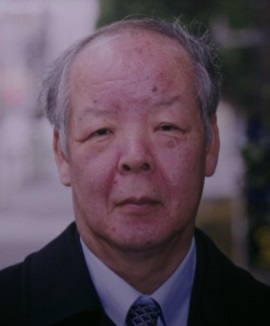
吉岡斉さん絵WEBより
From Mr. Hitoshi Yoshioka's Picture Web
(註)伝記上巻 468頁〜
核戦争から世界を守る・・・ガジェットが文明に及ぼす影響を公開討論
戦争が実質的に勝利に終わったあと、なぜわれわれは爆弾製造を続けているのか?
(Note: Biography, vol. 1, p. 468~. Protecting the World from Nuclear War... Public Debate on the Effects of Gadgets on Civilization Why do we continue to build bombs after the war is practically won?
470頁
今後永遠に恐怖のなかで生きる運命にある、一方で戦争を終結させる可能性もある
pg. 470 Doomed to live in fear forever more, while potentially ending the war
討論内容
この恐ろしい兵器は世界にどのような影響を及ぼすのか、我々は何をしているのか、それとも悪いことをしているのか、科学者はどのように使われるのかについて心配してはならないのか
Discussion Topics. How will this terrible weapon affect the world, what are we doing or doing wrong, should scientists not worry about how it will be used?
政治の問題だとしてオッペンハイマーは討議を反対した
Oppenheimer opposed the debate, saying it was a political issue.
伝記下巻124頁
アインシュタインはオッペンハイマーを親友の一人としてあげることをしない「科学的な意見が正反対に異なる」アインシュタインは量子論を受け入れることを拒絶、オッペンハイマー完全に頭がおかしいと批評した
Biography, lower volume, p. 124. Einstein would not let Oppenheimer be one of his best friends "whose scientific opinions differ diametrically" Einstein refused to accept quantum theory, criticizing Oppenheimer as completely nuts
Hanada: On a related note, NHK recently aired a documentary on former Kyushu University professor Hitoshi Yoshioka, which was produced by accessing documents related to the Atomic Energy Commission left behind by the late Mr. Yoshioka. (NHK, March 2, 2024, "Expansion and Oblivion: Nuclear Energy Policy as Seen by a Man of Ri") That program was very interesting.
In other words, Mr. Yoshioka was also living through this dilemma and paradox. He would participate in national councils. His own justification for becoming a member of such a committee is that there is a need for transparency and rationalization of the policy-making process, and so on. However, in the end, he was caught up in interest politics, which he also sees as "profit politics," and in the end he could not have a rational discussion. I had to come to that point, didn't I? I think it is a kind of defeat.
Suzuki: You are right.
Sato: Oppenheimer tested the atomic bomb, but he dismisses the question that it is up to politicians to decide whether to use it. In the film, he clearly says that. That argument is also left out of the film, isn't it?
Suzuki: It's not fair, it escapes me.
Sato: What I don't understand, however, is the idea of Niels Bohr and other Dutch and Belgian scientists to share nuclear technology and to manage nuclear weapons internationally (Note: -Rothblatt won the Nobel Prize in 1995 for his work on nuclear disarmament-), and Oppenheimer must have known the ideas of such scientists. But somehow he didn't take over Dr. Bohr's ideas and didn't participate in the Pugwash Conference. I don't understand.
Suzuki: That would be true, because he is the director of Los Alamos.
Sato: You said you had crossed over from the time you took on the role of warden at Los Alamos.
Suzuki: They must have thought, we have to do it, what will happen if I oppose it? I have to resign.
Sato: I see. Is that because of the discrimination against Jews in America, or because you grew up watching your father working hard in business as an immigrant, and you wanted to show your skin here? I don't know the historical relationship between Jews and Americans, but that may have been the background... That's why I imagined his determination to build a nuclear bomb and show it to the military.
Suzuki: From the moment I accepted the position of director, I probably had the same feelings as you mentioned.
Sato: Director Nolan used a skillful technique. He showed Oppenheimer's inner life in his clothes by having him put on and take off his military uniform without having him speak in words. If you look at the Manhattan Project, they invite him in as the head of the civilian staff, or maybe they appoint him. The film shows Oppenheimer in a military uniform. It showed him in a military uniform that he was not supposed to wear. In the movie, Oppenheimer goes back and forth between being a scientist and a soldier. It was a direction to make the audience think about the dilemma and hesitation as Dr. Hanada mentioned. It was made in a complicated way.
Oppenheimer is not interested in Einstein. (p. 124 of the lower volume of the biography) The biography doesn't say that they had a close dialogue as in the movie. The dialogue between them in the movie is pictured after the nuclear bombings of Hiroshima and Nagasaki. They were invited to the Institute for Advanced Study in Princeton and returned to being scientists who, in essence, were given a house and a salary and could live a research life where the American establishment let scientists live and play, but there is no mention of them living on the same property and interacting closely with Einstein. Every day, he drank martinis with his wife and friends and socialized with poets, literary scholars, historians, and doctors of letters. I think Oppenheimer came to dislike scientists.
I like the way they traveled, riding horses and wandering in the wild for days at a time, even though it wasn't depicted in many of the movies. I like the idea of wandering in the wilderness with no grass or trees while staying in the field. I saw it as a necessary picture to depict Oppenheimer.
Suzuki: It was drawn a little bit.
Sato: Since childhood, my only sport has been horseback riding.
Suzuki: Los Alamos itself is the land he rode and liked.
Sato: I was attracted to wilderness, and I wonder if it has something to do with my love of minerals since childhood.... I like to live in nature, in a place where I am not guaranteed to eat or be eaten and where my safety is not guaranteed. He also said that he sailed on a ship. He sometimes falls in love with women he meets in the fields and mountains. His love for women will stay with him for the rest of his life. Such extremely strange human nature. Los Alamos, where every action was monitored. He goes to see his mistress, probably with his brother's guidance, and that behavior is also bullshit and womanizing. I thought he was a drunkard and a lazy son of a bitch. I saw him as a drunkard and a lazy son of a bitch, though this is not depicted in the film. The way he treats his eldest son and daughter is also written in his biography, but he is such a terrible man that I wondered if he was really a father.
Suzuki: We are laughing a lot.
Hanada: It can't be helped that he is a genius.
Sato: I don't want to be the child of a genius. The closing of Oppenheimer's autobiography is about his daughter's suicide.
Suzuki: My grandson is coming to Japan.
Sato: Okay, probably Oppenheimer's eldest son, his child who was a carpenter by trade. His eldest daughter committed suicide by hanging herself in their family home on St. John's Island in the Virgin Islands, leaving a will saying that she would donate her inheritance to the community. It is easy to imagine her life from her birth, her relationship with her parents, and her continued failure to find a job until her suicide. She is a woman who really wanted her parents to love her in an ordinary way. Oppenheimer is a father who doesn't understand how to love people, how to love his daughter and son as a father. He's a man who understands love in letters and in poetry, but can't understand and practice love in real life.
Oppenheimer may meet some good women, but he is truly loved...he doesn't know it. And he is a man who takes the wives of his friends. It would have been good to depict him as an unusual man who also plunges into the production of atomic bombs.
Suzuki: I was out for a bit.
1960年、オッペンハイマーは東京を訪問し、新聞記者に語った。「原爆の技術的成功に何らかのかかわりをもったことは後悔しません。申し訳なく思っていないのではありません。昨夜よりも今夜の方がという具暗に私の心は痛んでいます」
In 1960, Oppenheimer visited Tokyo and told a newspaper reporter I do not regret having had any part in the technical success of the atomic bomb. It is not that I am not sorry. My heart aches more tonight than it did last night.
■原爆の被害は描かれていたか?
佐藤:映画での恋人ジーンとオッペンハイマーの別れる一晩の描き方はあまり良いとは思いませんでした。では、原爆のシーンが描かない!?その点の問題に話を変えますね。
映画では実験成功してロスアラモス内の科学者とその家族を集めて演説するあの場面で描いている。オッペンハイマーの脳内が映像化されてました。集まった人々の顔が爆風ではがれ飛び散るような絵で示してた。足元には真っ黒い人形が倒れていて、踏んづけてしまう。人間が炭のようにパリパリと壊れていく。あれで十分描けていると思いました。
愛することが分かっていないように、人が死ぬということが分かっていなかったのではないかな・・そういいう気がしてしょうがないです。
鈴木:顔が溶けるシーンの女性はクリストファー・ノーラン監督の、実の娘さんだそうです。
佐藤:そうでしたか!監督の娘さんの顔、皮膚が剥がれる、あのシーンは気持ち悪いですよね。
鈴木:あそこを見せるかどうか揉めたそうです。ノーラン監督はあのシーンは悩んだと思いますよ。
佐藤:娘さんを被爆した女性にメークアップし撮影した!それを映画に埋め込んじゃった!
鈴木:わからないけど、見せるとなると、どこを見せるか悩ましいじゃないですか。
佐藤:そうですね。
鈴木:見せたら見せたで、これだけしか見せなかったのかと言われるし。何を選ぶかによって変わってくるので。見せるなら徹底して見せるしかないと。ぱっぱっと見せただけではあまり意味が無い。オッペンハイマー自体はたぶん投下後の広島・長崎の写真しかみていないので、むしろ空想の中の絵のほうがオッペンハイマーの悩みに直結するというか・・・オッペンハイマーを描くという意味では幻想の方がきっといいんじゃないかと。
もちろんそれによって、広島長崎の方から凄い反対が出るだろう、日本の人から反対がでるだろうと、クリストファー・ノーラン監督は知っていたと思います。逆にだからこそ中途半端に見せるのはかえってよくないと思っていたのかなと。
私自身はあのシーンはずっとオッペンハイマーの顔を写していて、スライドを見ながら顔を背けるじゃないですか。あの一瞬の演技、あれはオッペンハイマーを演じたキリアン・マーフィが巧いんだけど、なんとも言えない表情を見せるじゃないですか。あの一瞬はすごい価値があるシーンだし、私は、観ているときは「あこれで広島長崎の写真が出てくるんだな・・・」と思った。「あ、見せないで終わっちゃった」と。
ところがその後、黒焦げの死体がでてきたり、顔の皮がむけるシーンが出てきたりしたので、ああなるほど幻想を描いたんだなと思った。あそこは一番クリストファーノーランが悩んだんじゃないかな。
佐藤:あの描き方は巧いと思いました。最後の〆、アインシュタインとのプリンストン高等研究所内での立ち話して決裂したのかな、アインシュタインはオッペンハイマーを認めてないのが分かる、そして「計算し確認した、空気は燃えない・・と」アインシュタインと別れる瞬間、あの数式を握りつぶし、核戦争の連鎖で地球全体が燃えだす。死体や顔の皮膚が剥がれるシーンと繋がっていて、巧いなと感心しました。
起爆実験大成功し講演会場の聴衆は大歓声。だけど映像は、音が消えて被爆者を想像する幻想シーンに入る。大成功演説のなかオッペンハイマーは聴衆・観客のみなの顔が剥がれ壊れるていく姿を幻視してしまう。空気と海に、火はつかないけど、核兵器の応酬が始まり地球が燃え始める。核兵器は使う政治側の問題だ・・との絵で終わる。
それらの映像の連なりは広島長崎の地獄絵を見せるよりは普遍性をもっていた。戦争と核兵器の存在は地球全体の問題だと。火の玉地球は、映画の入りの水滴波紋シーンと対になっていて良かったです。
花田:逆にね顔を背けるところで、広島長崎の被爆者の実写の写真映像を出したら、あの映画はぶち壊しだと思うんですね。それで、出さなかった批判も出ているけれども、もしも実写映像を出したら、その数倍の批判があると思いますよ。
エンターテインメントの中で、長崎広島の被爆者自身の実写・写真を使った・・・ってなったら、その事に対して決して許せない!という拒否反応は猛烈だと思いますね。だから出しても、出さなくても批判される。
佐藤:出しても出さなくても批判されるならノーラン監督の描き方は巧い!
鈴木:米国の歴史研究者の方が批判しているのは、見せないじゃなくって、映画全体の描き方。基本的にアメリカの視点でしか描いてないと。映画としてはそれは無理なんです。だけど彼女たちはそういうことをやっている人たちなんで、そう思うこともよく分かるし・・・私はあの映画を観た感想として、そういうふうに出てくるのもよく分かる。
だけど映画としての価値はそれではない、むしろそういう反応がでてくる事を知っていてノーラン監督は作ったにちがいない。
その04へ続く
■Was the damage caused by the atomic bomb depicted?
Sato: I didn't think the way you depicted the one night of separation between Jean, the lover, and Oppenheimer in the movie was very good. Then, the atomic bomb scene is not depicted! I'll change the subject to the issue of that point.
The film depicts him in that scene where he is addressing a gathering of scientists and their families inside Los Alamos after a successful experiment. Oppenheimer's brain was visualized. He showed the faces of the gathered people in a picture that looked like they were being peeled off and scattered by the blast. A pitch black doll lies at their feet and they step on it. People were broken into crispy pieces like charcoal. I thought that was enough to depict it. I think he didn't understand that people die, just as he didn't understand love...I can't help but feel that way.
Suzuki: The woman whose face melts in the scene is Christopher Nolan's own daughter.
Sato: I see! The director's daughter's face, the skin peeling off, that scene is disgusting.
Suzuki: I heard that they struggled over whether to show that scene or not. I think Director Nolan had a hard time with that scene.
Sato: I made up the daughter of a woman who was exposed to the atomic bomb and filmed her! I embedded that in the film!
Suzuki: I don't know, but if I were to show them, I would have a hard time deciding where to show them.
Sato: Yes.
Suzuki: If I showed them, they would say that I only showed them this much. It depends on what you choose. If we show them, we have to show them thoroughly. There is not much point in just showing them quickly. Oppenheimer himself probably only saw the pictures of Hiroshima and Nagasaki after the bombing, so I thought that the pictures in his fantasy were more directly related to Oppenheimer's problems... In terms of depicting Oppenheimer, I thought that fantasy would probably be better.
Of course, I think director Christopher Nolan knew that there would be strong opposition from the people of Hiroshima and Nagasaki, as well as from the Japanese people. On the other hand, I think that is why he thought it would be a bad idea to show the film in a half-hearted way.
I myself was looking at Oppenheimer's face all through that scene, and as I looked at the slide, he turned his face away. That one moment in his performance, that moment when Killian Murphy, who played Oppenheimer, is so skillful, he shows an indescribable expression on his face. That moment is a very valuable scene, and when I was watching the film, I thought, "Oh, this is how the pictures of Hiroshima and Nagasaki are going to appear..." I thought, "Oh, it's over without showing them. Oh, they finished without showing it. But then the scene with the charred corpses and the peeling of the skin off the faces came out, and I thought, "Oh, I see...he's depicting an illusion. I think Christopher Nolan was most troubled by that scene.
Sato: I thought the way you drew that was clever. In the final scene, Einstein and Oppenheimer were standing around in the Institute for Advanced Study in Princeton, and it was clear that Einstein did not approve of Oppenheimer's work, and he said, "I have calculated and confirmed that air does not burn. The whole planet starts to burn. I was impressed by the cleverness of the connection with the scene where the dead bodies and facial skin are peeled off.
The detonation test was a great success, and the audience in the lecture hall cheered loudly. However, the sound disappears and the film enters a fantasy scene in which the audience imagines the atomic bomb survivors. In the midst of his successful speech, Oppenheimer has a vision of the faces of the audience and spectators being peeled off and destroyed. The air and the sea are not set on fire, but the exchange of nuclear weapons begins and the earth begins to burn. The film ends with a picture that nuclear weapons are a problem for the politicians who use them. The sequence of these images had more universality than showing a hell picture of Hiroshima and Nagasaki. The existence of war and nuclear weapons is a problem for the entire planet. The fireball earth was a good counterpoint to the water drop ripple scene at the entrance of the film.
Hanada: On the contrary, I think the film would have been ruined if we had shown live-action photographs of the hibakusha of Hiroshima and Nagasaki at the point where they turned their faces away. There has been criticism for not showing them, but if live-action images were shown, I think there would be several times as much criticism. If you use live-action photos of Nagasaki and Hiroshima hibakusha in an entertainment film, I don't think there will be a strong reaction of "I can't allow that! I think the rejection reaction would be fierce. So, whether you do or don't, you will be criticized.
Sato: If you are criticized whether you put it out or not, the way director Nolan portrays it is skillful!
Suzuki: What U.S. historical researchers criticize is not what is not shown, but the way the film is portrayed as a whole. Basically, they say that the film only depicts the American point of view. As a film, that's impossible. But they are the ones who are doing that, so I can understand why they would think that way... I can understand why they would come out that way, as I watched that film.
But that is not the value of the film, and Nolan must have known that this is the reaction he would get.
Continue to No.04
01 02 03 04 Links to Japanese and English versions